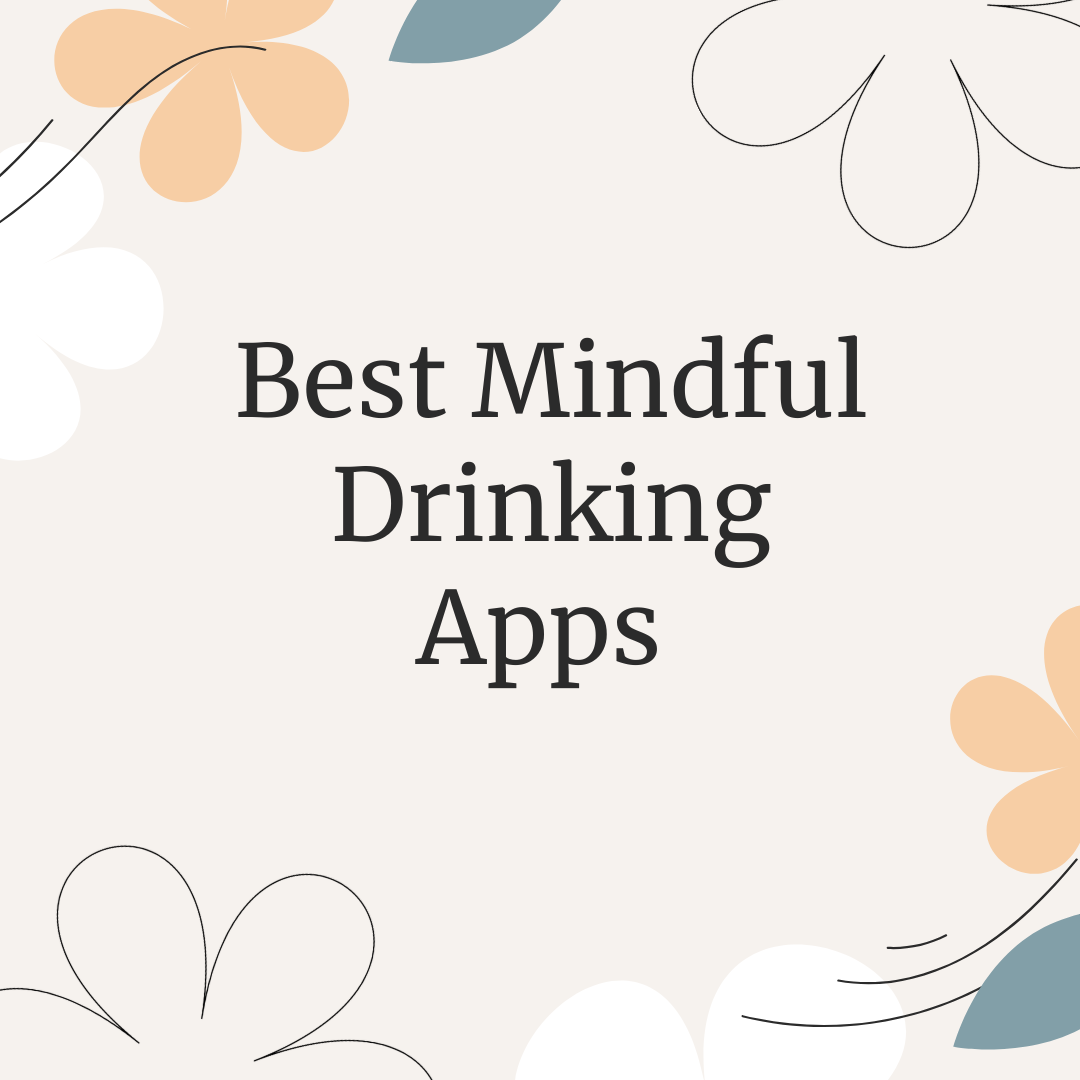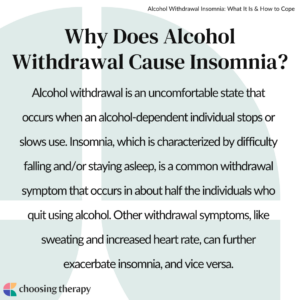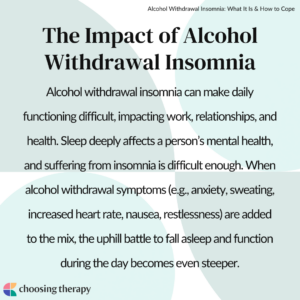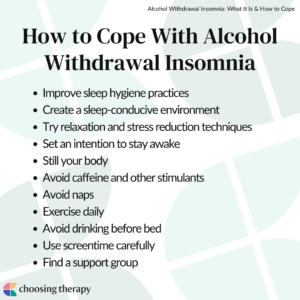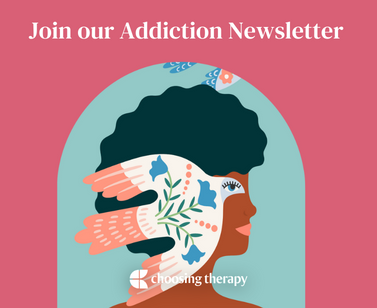Alcohol withdrawal insomnia is difficulty falling or staying asleep as a result of quitting or reducing alcohol consumption in dependent individuals. It can be limited to the first week of withdrawal or persistent, lasting several months. Since insomnia can increase the risk of relapse, medications and psychotherapeutic treatments that can help to initiate and maintain sleep should be considered.
Ria Health: Effective, Evidence-Based Alcohol Treatment 100% Online Quickly change your relationship to alcohol with our at-home program. On average, Ria Health members reduce their BAC levels by 50% in 3 months in the program. Services are covered by many major health plans. Visit Ria Health
Why Does Alcohol Withdrawal Cause Insomnia?
Alcohol withdrawal is an uncomfortable state that occurs when an alcohol-dependent individual stops or slows use. Insomnia, which is characterized by difficulty falling and/or staying asleep, is a common withdrawal symptom that occurs in about half the individuals who quit using alcohol. Other withdrawal symptoms, like sweating and increased heart rate, can further exacerbate insomnia and vice versa.1,2
As a central nervous system depressant, alcohol impacts sleep; it can be relaxing and sleep-inducing, but it also disrupts normal sleep patterns. It works primarily by increasing inhibitory (GABA: gamma amino butyric acid) neurotransmission and decreasing excitatory (acetylcholine) neurotransmission. When an alcohol-dependent individual stops using alcohol, the central nervous system becomes hyperexcitable, leading to withdrawal symptoms like anxiety, seizures, as well as insomnia.
Here are common symptoms of alcohol withdrawal insomnia:
- Difficulty falling asleep
- Difficulty staying asleep; Waking up frequently
- Waking up earlier than desired
- Restlessness
- Agitation and irritability
- Daytime sleepiness
- Attention and concentration difficulty
- Memory impairment
- Making more errors than normal
- Mood changes
- Feeling unmotivated
- Worsening of mental health conditions (e.g., depression, psychosis, anxiety)
- Headaches
- Tension
- Gastrointestinal symptoms
How Common Is Alcohol Withdrawal Insomnia?
Insomnia is a common side effect of withdrawal, afflicting 25% of patients in the first two days of abstinence and 58% within the first six days. For some individuals, insomnia can persist for 3-6 months after quitting. The severity and persistence of withdrawal insomnia depends on several factors, including the duration and severity of alcohol use disorder, whether insomnia preceded alcohol use, the presence of mental health comorbidities (like anxiety and depression), and one’s ability to change sleep-wake habits.
How Long Does Insomnia Last After You Stop Drinking?
While acute withdrawal symptoms from alcohol dependency generally last no more than one week, insomnia can last 3-6 months, as can anxiety and autonomic dysfunction. One’s healthcare provider may prescribe short-term sleep aids (e.g., melatonin, benzodiazepines, gabapentin) and also recommend psychotherapeutic interventions to help with underlying causes like anxiety and maladaptive behaviors (e.g., napping, caffeine consumption, social media scrolling before bed).
The Impact of Alcohol Withdrawal Insomnia
Alcohol withdrawal insomnia can make daily functioning difficult, impacting work, relationships, and health. Sleep deeply affects a person’s mental health, and suffering from insomnia is difficult enough. When alcohol withdrawal symptoms (e.g., anxiety, sweating, increased heart rate, nausea, restlessness) are added to the mix, the uphill battle to fall asleep and function during the day becomes even steeper.
Treatment Options for Alcohol Withdrawal Insomnia
Whereas for many other types of insomnia, behavioral treatments are the first-line treatment, short-term pharmacotherapy is often used in cases of alcohol withdrawal insomnia to temporarily ease symptoms as the substance of dependence is removed. However, medication is most effective when combined with psychotherapy and behavioral interventions to address the underlying alcohol use disorder.
Treatment options for alcohol withdrawal insomnia include:
Medication
The medications most commonly used to treat alcohol withdrawal insomnia are sedatives, like benzodiazepines and gabapentin, but the exact medication prescribed will depend on the individual’s comorbidities. Sometimes, an individual’s mental health issues may be the root cause of both sleep difficulties and alcohol use. In such cases, the use of antidepressant or antianxiety medication could be prescribed to alleviate these issues first, decreasing one’s reliance on alcohol and improving one’s ability to fall asleep. It is important to note that medication is most effective when combined with psychotherapy and behavioral interventions.
Psychotherapy
Alcohol use disorder (and thereby alcohol withdrawal insomnia) doesn’t arise from nowhere, and determining the causative factors is important. While genetics may play a role in some cases, other times, alcohol is used to relax, quell anxiety, and also distract oneself from uncomfortable thoughts and feelings. Removing alcohol from one’s daily regimen can bring back the very things that led one to drink in the first place and culminate in insomnia at bedtime.
Therapy options for co-occurring alcohol addiction and insomnia include:
- Cognitive behavioral therapy (CBT): A CBT for addiction therapist helps the individual identify maladaptive thought patterns and behaviors associated with addiction, develop healthy skills and coping strategies to challenge maladaptive thinking, and manage cravings. Over time, these new ways of thinking and behaving are reinforced, with the goal being long-term change and relapse prevention. CBT for insomnia (CBT-I) applies these strategies with a focus on insomnia.
- Dialectical behavior therapy (DBT): DBT is similar to CBT but with more focus on emotional regulation, mindfulness, and interpersonal skills to manage emotional distress. A DBT therapist will help an individual struggling with addiction to accept current circumstances while also actively working towards change.
- Psychodynamic therapy: Although this approach for therapy is less common than CBT, it can be helpful in cases of unresolved trauma and unconscious anxieties that give rise to insomnia and alcohol use disorder.
- Sleep restriction + hypnotic (medication) therapy: In some cases, insomnia is perpetuated by daytime napping and/or sleeping late. Sleep restriction is a behavioral method that can help correct one’s sleep-wake cycle.5 By waking up earlier, staying awake despite daytime sleepiness, and enhancing sleep induction at an appropriate evening time, there is a higher propensity to sleep at night.
- Motivational interviewing: Motivational interviewing helps the individual to see change (in this case, recovery from alcohol misuse) as occurring in steps or stages. The therapist helps the individual discover their own intrinsic desire for change and establish clear, realistic steps for change through guided but open-ended questioning and reflective listening.
- Family therapy: Understanding and adjusting family dynamics can be a very powerful tool in treating alcohol use disorder. As alcohol use disorder often involves the whole family and not just the person struggling, family therapy will help the family members improve communication, support each other, and find healthy ways to cope with challenges during withdrawal, recovery as well and instances of relapse.
- Contingency management: This approach involves reinforcing positive behaviors like abstinence, treatment attendance, and medication adherence with “agreed-on, immediate, tangible rewards.”6 It is particularly effective for individuals with a dual diagnosis of schizophrenia and alcohol use disorder.
Neuromodulation Therapy
Some clinical research suggests that neuromodulation therapies, like transcranial magnetic stimulation (TMS) and transcranial direct current stimulation (tDCS), have the potential to treat insomnia. However, they may not be recommended for individuals with acute alcohol withdrawal insomnia due to the risk of seizures. Nevertheless, it is worthwhile to mention that for treatment-resistant cases of prolonged insomnia lasting for months of abstinence, neuromodulation may be an option to explore.7,8
Psychedelic-Assisted Therapy
Therapeutic psychedelics, like psilocybin and ketamine, have recently surged in popularity as a treatment option in clinical research trials for several conditions, including alcohol use disorder.9 Psychedelic-assisted therapy is not a treatment for insomnia directly, as it can actually make it more difficult to fall asleep after use. However, psychedelic-assisted therapy has shown efficacy for alcohol use disorder, as well as other mental health conditions that may underlie both insomnia and alcohol use, like anxiety and depression.
When combined with psychotherapy, two psilocybin treatment sessions resulted in reduced craving and alcohol consumption (27-41% fewer days) extending through 32 weeks.10,11 Ketamine treatment improved abstinence rate from 24% to 66% after one-year of abstinence.12
Help for Alcohol Use Ria Health: Effective, Evidence-Based Alcohol Treatment 100% Online Quickly change your relationship to alcohol with our at-home program. On average, Ria Health members reduce their BAC levels by 50% in 3 months in the program. Services are covered by many major health plans. Visit Ria Health Recovery.com – Find the best local detox or rehab center covered by your insurance. Search our unbiased and thorough list of the best mental health and addiction treatment centers. Read reviews. Start Your Search Want to drink less? Sunnyside helps you ease into mindful drinking at your own pace. Think lifestyle change, not a fad diet. Develop new daily routines, so you maintain your new habits for life. Take a 3 Minute Quiz
How to Cope With Alcohol Withdrawal Insomnia
Given that poor sleep increases the likelihood of relapse, it is important to develop healthy coping skills for alcohol withdrawal insomnia.14,15 Seeking professional support is the first step, but there are some general things one can do to cope. Coping skills include improving sleep hygiene, practicing mindfulness, increasing exercise, and decreasing stimulants.
Here are eleven tips for coping with alcohol withdrawal insomnia:
1. Improve Sleep Hygiene Practices
Chronic alcohol use and withdrawal can deregulate sleep patterns. There are actions one can take to reset one’s clock and get on a healthier sleep schedule. Good sleep hygiene refers to a set of practices and habits that promote healthy and restorative sleep.
Good sleep hygiene may include:
- Maintaining a consistent sleep schedule (going to bed and waking up at the same time daily)
- Keeping your sleep environment dark, cool, and quiet
- Avoiding stimulating activities before bed, such as watching an interesting television show or browsing social media on your phone
- Avoiding naps
- Curbing caffeine intake especially late in the day
- Practicing relaxation techniques like meditation and deep breathing
- Exercising regularly (but not right before bed)
2. Create a Sleep-Conducive Environment
A quiet, cool room with dim or no light is ideal for both falling asleep and easing other withdrawal symptoms one may experience when quitting alcohol. Of course, it’s not always possible to control one’s environment completely (e.g., shared bedroom, inpatient setting, or urban location). In such cases, listening to relaxing music or natural sounds through headphones and covering your eyes with a sleep mask can help to compensate.
3. Try Relaxation & Stress Reduction Techniques
Relaxation techniques, such as EFT tapping and yoga, can help individuals struggling to fall and stay asleep, thus reducing the temptation to turn to alcohol as a sleep aid. Studies have also shown that relaxation tools can help reduce alcohol consumption, which renders it a useful multipurpose tool to improve sleep, decrease substance misuse, and improve mental health.3,4
4. Set an Intention to Stay Awake
Falling asleep is not something that you can force yourself to do. Ironically, the harder one actively tries to sleep, the more elusive sleep becomes, as agitation and frustration build with every tick of the clock, especially when suffering from insomnia.
Paradoxically, sometimes setting an intention to stay awake takes the pressure off and can actually help one to fall asleep. However, try to do something relaxing and not too stimulating while you try to ‘stay awake,’ like reading.
5. Still Your Body
When trying to fall asleep, it is common to feel restless, and this is even more the case during alcohol withdrawal. Have you ever thought: “If I just move my leg, I’ll be comfortable and able to fall asleep,” only to find that you have that same thought two minutes later?
Each time you move your muscles, you arouse your brain, and that can actually work against your efforts to fall asleep. Guided imagery meditation and progressive relaxation techniques are particularly helpful for overcoming restlessness.
6. Avoid Caffeine & Other Stimulants
Insomnia at night is often followed by caffeine use the next day in the form of coffee, soda, or energy drinks. Caffeine and other stimulants (such as nicotine) can interfere with sleep the following night, especially if consumed after 2 pm. While getting that late afternoon boost is tempting, it may perpetuate sleep problems.
7. Avoid Naps
As one is active over the day, a need or pressure gradually builds for the brain to sleep, just as jogging in hot weather gradually increases the need to drink and rehydrate. Napping relieves some of that pressure, which may refresh you for the rest of the day, but it can impede your ability to fall asleep at a reasonable time that night. For someone with alcohol withdrawal insomnia, it may be tempting to use alcohol as a sleep aid, but doing so risks relapse and further sleep problems.
If you must take a nap, consider setting an alarm and resting your eyes for no more than 20 minutes. The key is to prevent your brain from entering slow-wave sleep, which is the deep restorative phase of sleep. As long as you keep rest brief, it can be refreshing without affecting your ability to fall asleep later that night.
8. Exercise Daily
For the same reason, naps are not recommended; exercise during the day is highly recommended to promote sleepiness later that night. Try to finish exercise at least 2 hours before bed, as exercise can initially stimulate your body as it maintains a temporary state of arousal.
Routine daily exercise — especially if outside in daylight — can regulate your sleep/wake cycle (i.e., circadian rhythm), reduce stress, and contribute to a healthier physical and mental state.
9. Avoid Drinking Before Bed
Consuming liquids (alcoholic and non-alcoholic) before bed will increase the likelihood that you will need to use the bathroom as you try to fall asleep or in the middle of the night. Try to limit all liquids for at least an hour before bedtime.
If you feel thirsty, consider sucking on a few ice chips. Of course, consult with your healthcare provider about whether withholding water at night is contraindicated in light of other alcohol withdrawal symptoms you may be experiencing.
10. Use Screentime Carefully
There are certain cases where watching a screen can be useful. In cases where the mind is racing and other relaxation strategies (e.g., meditation, music) are not sufficient to calm the mind, distracting oneself with a boring movie, preferably one you’ve seen before and know the ending to, can be helpful. Keep the screen at a distance, on a dim setting, and where you can keep your eyelids droopy while watching.
Setting an intention to try to stay awake through the whole boring movie can paradoxically help one fall asleep as well. Listening to an audiobook may be a better alternative for some who prefer to keep their eyes closed but mind-distracted. Many mindfulness apps have bedtime stories available.
11. Find a Support Group
Alcohol withdrawal insomnia can be transient and resolved within a week, but it can also linger for months. It can feel very lonely being awake at night when everyone else is sleeping. Support groups like Alcoholics Anonymous (AA) play a crucial role in the recovery process for many individuals and their families. AA or other group therapy interventions provide a safe, non-judgmental space where individuals can connect with others experiencing similar struggles with addiction and dependence.
Being surrounded by others at various recovery stages can be immensely beneficial as it offers a sense of understanding and hope, a preview of what may be ahead, a perspective on what lies behind, and a feeling one is not alone in their journey.
Finding group therapy or support groups online has become increasingly easier in recent years. Many organizations and mental health platforms offer virtual support groups where people can engage from the comfort of their own home.
When to Seek Professional Help
If you or someone you care about is drinking alcohol in excess or has problems sleeping, it can be beneficial to get help before a vicious cycle strengthens. Early intervention for both alcohol misuse and sleep problems is key to prevent a worsening of symptoms and improve the likelihood of a successful outcome. Treatment will vary with severity and identification of the primary cause of symptoms.
In severe cases of alcohol dependence, hospitalization or an inpatient treatment clinic may be necessary to stabilize the person and help them through detoxification and withdrawal. For less severe cases, an outpatient treatment clinic may be sufficient to support the individual through the treatment process. Unfortunately, a formal sleep evaluation is often not a routine part of treatment for alcohol and substance misuse, so you may have to advocate for yourself or your loved one to involve a sleep specialist in your treatment plan.
An online therapist directory is a great way to find a therapist who specializes in substance misuse and insomnia. If accessibility is a concern, an online therapy platform is an alternative way to have easy access to a specialized therapist from the comfort of your own home. Additionally, an online psychiatrist platform is an excellent option if you wish to explore treatments that involve medication.
In My Experience
To help our readers take the next step in their mental health journey, Choosing Therapy has partnered with leaders in mental health and wellness. Choosing Therapy is compensated for marketing by the companies included below. Alcohol Treatment – Cut Back or Quit Entirely Ria Health – Quickly change your relationship to alcohol with our at-home program. On average, members reduce their BAC levels by 50% in 3 months in the program. Services are covered by many major health plans. Visit Ria Health Drinking Moderation Sunnyside – Want to drink less? Sunnyside helps you ease into mindful drinking at your own pace. Think lifestyle change, not a fad diet. Develop new daily routines, so you maintain your new habits for life. Take a 3 Minute Quiz Detox or Rehab Center Covered by Insurance Recovery.com – Find the best local detox or rehab center covered by your insurance. Search our unbiased and thorough list of the best mental health and addiction treatment centers. Read reviews. Start Your Search Treatment for Mental Health Conditions That Coexist With SUD Talkiatry – Get help from a doctor who can treat the mental health conditions that commonly lead to or coexist with substance use disorders. Take our online assessment and have your first appointment in days. Take Assessment Addiction Newsletter A free newsletter for those impacted by addiction. Get helpful tips and the latest information. Sign UpAdditional Resources
Best Online Medication-Assisted Treatment Programs Online medication-assisted treatment programs are fairly new to the telehealth industry, but existing companies are expanding quickly with new programs emerging every day. It’s important to explore your options and understand the level of virtual care available so you can choose the best addiction treatment program for you.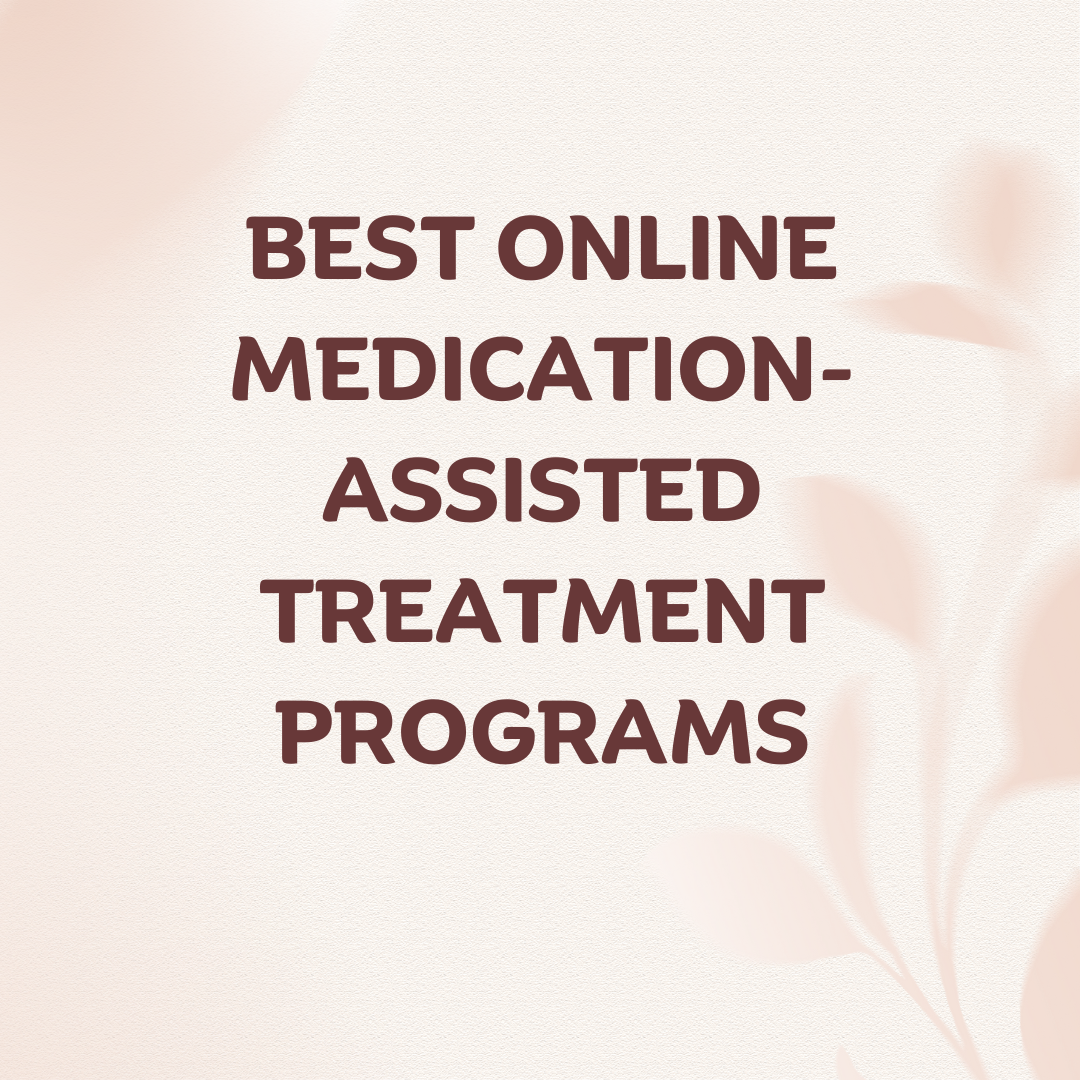
Best Mindful Drinking Apps If you’re thinking about joining the sober curious movement and you’d like to cut back on drinking, mindful drinking apps are a great place to start. Practicing mindful drinking can take some time, attention, and patience, but with the help of the right app, you can completely transform your relationship with alcohol.